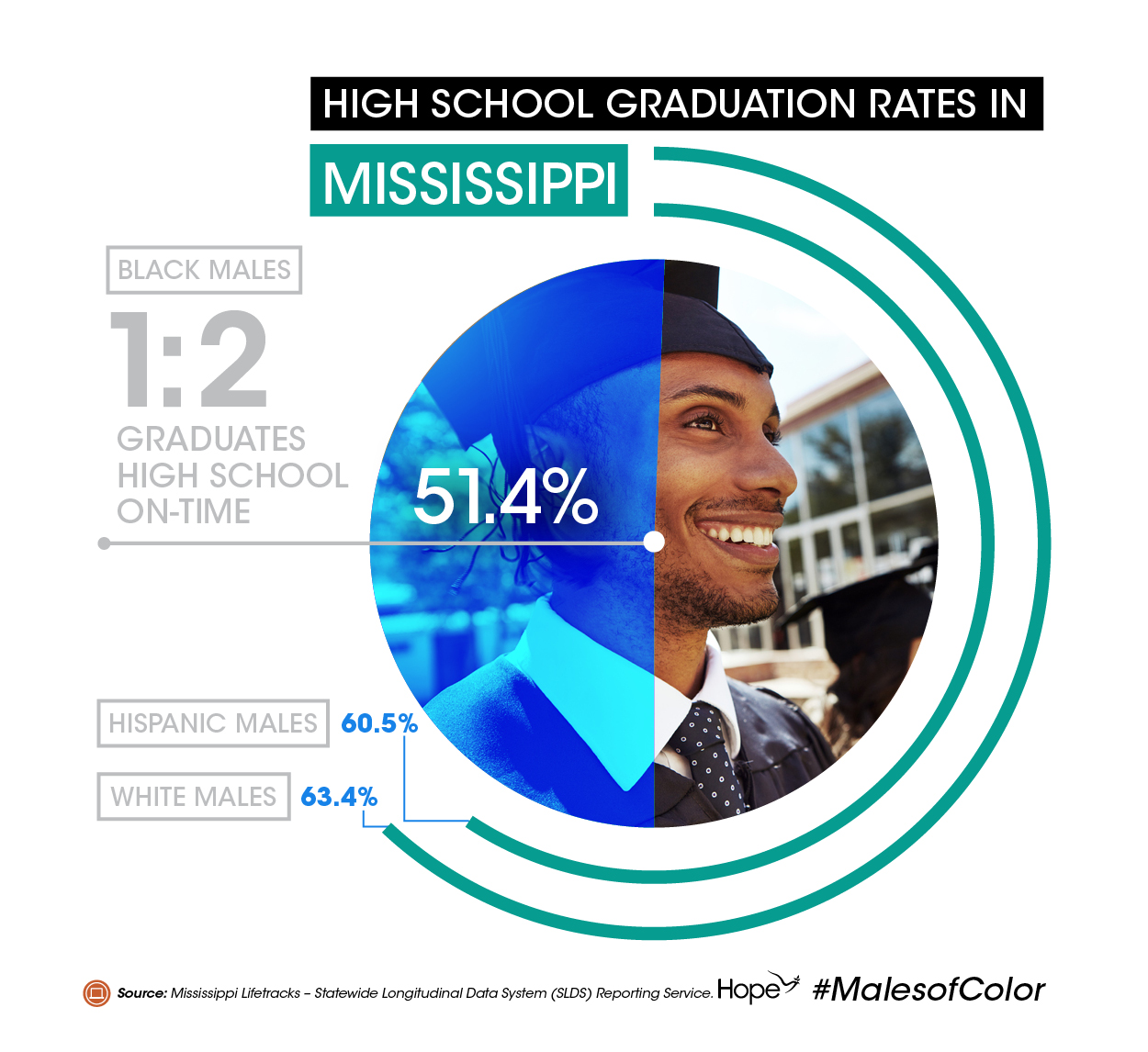Closing the Equity Gaps for Black Males in Mississippi
October 17th, 2017
When students do not complete a high school diploma or equivalency, it limits their chances of going to college, future job opportunities and economic security. According to the United States Census Bureau, more than one in five (22.2%) Mississippi men who did not receive a high school diploma or equivalency lived in poverty in 2015. Low high school completion rates shape the competitiveness of the Mississippi workforce – adults who do not complete high school struggle with financial instability caused by lower earnings and job insecurity.
The likelihood of on-time graduation varies by both gender and race. Just one in two (51.4%) Black males graduates from high school within four years in Mississippi, while three in five Hispanic (60.5%) and White males (63.4%) graduate on-time. Hispanic students are least likely to graduate on-time (63.3%) in Mississippi, closely followed by Native American (63.9%) and Black (65.9%) students and male students of any race or ethnicity (64.2%). See Infographic.
External factors beyond students’ control help determine high school completion rates. One of these factors, school funding, is particularly relevant in Mississippi where the public school funding mechanism, Mississippi Adequate Education Program (MAEP), has been fully funded only twice since its implementation in 1997. Research shows that higher per-pupil spending is associated with higher student outcomes, including graduation rates. Reimagining the state budget to reflect K-12 education as a priority could improve academic outcomes for all students and build the foundation for an educated, economically secure adult workforce in Mississippi.
Two new reports from Hope Policy Institute, Closing the Education Equity Gap for Mississippi’s Black Males and Closing the Economic Security Equity Gap for Mississippi’s Black Males, supported by Mississippi Action Network for Uplifting Promise (M.A.N. U.P.!), shed light on the complex factors that influence opportunity and uneven quality of life outcomes for males of color in Mississippi. Follow us on social media and join our newsletter to stay updated.







